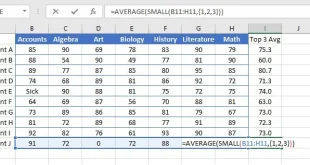The route to becoming a reputed and esteemed Judge is not simple. It entails dedicated hard work to lead a promising and secure career. Almost every other candidate desires to become a judge in his or her career. Hence, to acquire the prominent position of a Judge. You must have a Law Graduate Degree from an authentic law school. After that either you clear Judicial Service Examination or gain experience of more than 15 years by practicing law from a Sub-judge to the position of a Judge. However, to become a Judge after the 12th Standard you need to enroll in 3 or 5 Years of integrated law courses. Either by qualifying for the Law Entrance Exam like CLAT, AILET, DU LLB, LSAT, etc. or by taking admission to the top Private institutions or Self-Fledged Schools. Here, you can Kick-Start your Preparation by joining the Best CLAT Coaching Institutes.
How to Become a Judge in India after the 12th?
Step 1: Acquire a Bachelor of Law (LLB) Degree
After the completion of the 12th Standard, Students who want to pursue their career as a Judge should enroll in 3 or 5 Years of integrated Law Courses. Thus, Aspirants should appear in the law Entrance Exams such as CLAT, AILET, DU LLB, and other state Law Exams. After qualifying for these Law Exams Student is eligible for the 3 or 5 Year of integrated law course from top law schools. Or the Aspirants can get a degree from the Top Private Institutions. Hence, to pursue a career as a Judge, candidates must possess an LLB Degree.
Step 2: Qualifying for the Judicial Service Examination
After obtaining an LLB Degree, Candidates need to prepare for the Judicial Services Examination or PCS (J) which is commonly known as Provincial Civil Service Judicial Examination. Generally, Judicial Services Examination is conducted by 24 States to appoint their judicial official under the supervision of the Honorable high court and state government. Through this Exam, law graduates occupy their designated positions in the subordinate judiciary. It is the only process by which new law graduates can become Subordinate Court judges.
There are two stages of Judicial Services Examinations –
- Lower Judicial Services (LJS)
- Higher Judicial Services (HJS)
Both the Judicial Services follow these 3 rounds of the recruitment process. Given Below are the 3 rounds of the Judicial Exam:
- Preliminary Examination – The Preliminary round consists of objective-based questions I.e. Multiple Choice Questions. The Minimum Passing percentage requisite for the general candidates is 60 percent and for the reserved category 55 percent.
- Main Examination – The Main round is subjective based. In this Stage, candidates are entrusted with subject-based questions and answers. candidates are required to score at least 40% in each subjective paper to qualify for the next round.
- Viva Voice (Interview) – Last round is the Interview round adding up to the recruitment process.
Lower Judicial Services (LJS)
You must obtain an LLB Degree, and sign up as an advocate under the Advocate’ Act 1961 to be eligible to perform in this Examination. Even final-year students can perform in the exam without Experience. This LJS Exam is led to appoint Civil Judges for the Judicial Proceedings in various state courts. This LJS Exam is led by the State Public Service Commission or the High Court.
Eligibility: Candidates must have a 3-year integrated LLB degree or a 5-year integrated LLB degree.
Age Limit: The Age of the Candidates must not be below than 21 years as the lower limit and the upper limit are not above than 35 years of age. Relaxation in the upper age limit is provided to candidates on the basis of their respective OBC/SC/ST/PwD categories as per government norms. However, the Age limit of the candidates may vary from state to state.
Syllabus: For the syllabus refer to the official website of the commissions that conduct the LJS Examination. The Syllabus of the Lower Judicial Services Examination is based on the law subjects such as the Indian Penal Code (IPC), Code of Criminal Procedure (CrPC), Code of Civil Procedure (CPC), Civil Law, Constitutional Law, Property Law, and others with enclosure of local laws. Other sections such as English, General Knowledge, Current Affairs, and State’s local language is also contained in the syllabus.
Higher Judicial Services (HJS)
This HJS Examination requires that you must be a law graduate with at least seven years of experience litigating law practice. Higher Judicial Services Examination is conducted particularly for the promotion of Civil Judges to District Judges or to appoint Advocates as District Judges. Each advocate who is practicing the law proceedings must have cleared the All India Bar Examination.
Eligibility: By profession, the candidate must be an Advocate and must have experience in practicing law for at least 7 straight years. However, the eligibility criteria for the experience of a candidate may vary from state to state.
Age Limit: The Age limit of Candidates must not be less than 35 years of age and not above 45 years of age. However, the age limit may vary from state to state.
Syllabus: The Syllabus of the Higher Judicial Services Examination is very much like the syllabus of the Lower Judicial Services Examination. Performing for HJS Examination has a marginal big hand over the LJS Examination applicants may get posted as an additional district judge. As a result, It elevates the promotional proclivity of being a Judge.
How can you Become a Judge in Supreme Court in India?
The Supreme court is the Pinnacle Juridical domain in our constitution of India. Supreme Court is the uppermost court for Juridical Procedures under the Indian Constitution of the Republic of India. The top position in the hierarchy of judicial pillars preserves the final decision-making power in all legal matters.
Qualifications to Become a Judge in Supreme Court in India:
- He/She must be an inhabitant of India.
- He/She needs to have an LLB or LLM Degree.
- He/She should be a judge of a High Court for the least period of 5 years or he/she ought to have been an advocate of a High Court at least for 10 years.
Besides this, a candidate is also eligible even when he/she is an exceptional jurist according to the president of India.
How can I Become a Judge in High Court in India?
High Courts embrace the Judicial measures of States. There are approx. 25 High Courts present in India. For Each State and Union Territory of India, the uppermost court of appellate jurisdiction is High Court.
Qualifications to Become a Judge in High Court in India
- The Candidate must be an inhabitant of India.
- He/she needs to have an LLB or LLM degree.
- He/she must have worked under a judicial office in India for a minimum period of 10 years or he/she must have been an advocate of a high court for the least period of 10 years.
Can I Become a Judge without giving any Exam?
Yes, Under the process of “Elevation”, you can become a Judge within a significant period of time. In this process, the honorable senior advocates are appointed by the collegium of Judges. These honorable senior advocates are assigned to the office of High Courts or Supreme Courts without appearing in any competitive Exam.
Final Verdict:
The Job of a Judge contains a huge amount of Prestige in terms of imminent Decision-making, Responsibility, and Up to date with the current scenario. Hence, after going through the article you must have got some light on the career path after the 12th or “How to Become a Judge after the 12th class”. We have tried our best to offer precise and conceivable content to you. Nevertheless, if you still have any doubts regarding the above section you comment in the comment section. Your query will be answered shortly within 24 hours.
 Naasongs.fun
Naasongs.fun




